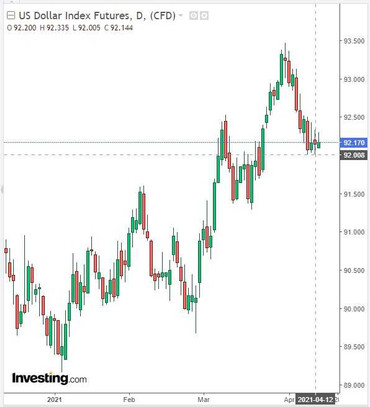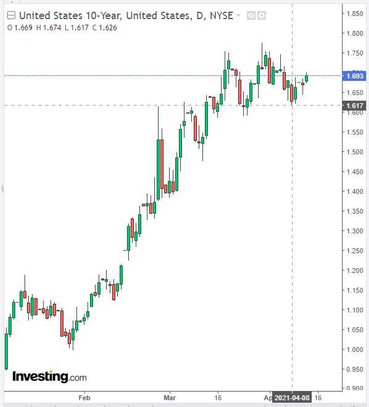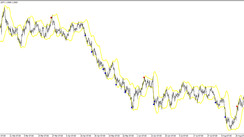As reported this morning in the German research center ZEW, the index of economic expectations in Germany in April fell (to 70.7 from 76.6 in March and against the forecast of 79), for the first time since November 2020.
Germany, like the rest of Europe, is fighting hard against the coronavirus. New lockdowns have a negative impact on business activity. Fears surrounding tougher quarantine measures have weakened expectations regarding the growth of personal consumption as well.
Eurozone retail sales rose 3% in February, following a 5.2% decline in the previous month, according to data released on Monday by Eurostat. At the same time, in annual terms, sales decreased by 2.9% in February after falling by 5.2% in January.
Despite the weak macro data, the EUR / USD pair remains trading in a range near the 1.1900 mark for the 5th trading day in a row in anticipation of new drivers.
Meanwhile, the dollar stopped declining, once again receiving support from the renewed growth in US government bond yields. As of this posting, DXY futures are traded near 92.17 mark, 17 pips above the local 3-week low of 92.00 hit on Monday.

At the same time, the yield on 10-year US government bonds rose to 1.693%, against 1.617% last week.

If it continues to grow, then the strengthening of the dollar is also likely to resume. Today, the dollar may also receive support from the publication at 12:30 (GMT) of consumer price indexes in the United States. This index (CPI) is a key indicator for assessing inflation and changes in purchasing preferences, as well as one of the determining factors (along with GDP and labor market data) for the Fed in determining the prospects for its monetary policy.
This Bureau of Labor Statistics report is expected to indicate an acceleration in headline inflation in March to 2.5% from 1.7% in February.
The data shows an improvement in the situation after the index fell in March and April 2020 amid the coronavirus pandemic. This could support a rise in 10-year Treasury yields and the dollar on speculation that the US economy is starting to overheat, economists say.
According to their calculations, if the yield on 10-year US Treasury bonds continues to grow, then this week it may test the strength of the 1.75% level, simultaneously providing support to the dollar.
Tomorrow the EUR / USD pair may swing again at 14:00 and 16:00 (GMT), when the speeches of the heads of the ECB and the Fed, Christine Lagarde and Jerome Powell, respectively, begin. Both Lagarde and Powell are in favor of continuing the extra soft stimulus policies of their central banks. It should be noted, however, that the Fed has more room to maneuver in this respect than the ECB. Any unexpected statements on their part can cause an increase in volatility in the entire financial market, but above all - in the EUR / USD pair.





